Two-day road trip in Gerês National Park
The natural paradise of Gerês is a true relic, a sanctuary of serenity that reveals new secrets each time you visit. Discover it in this two-day tour, by All About Portugal.
With a total extension of 72 thousand hectares, to get to know Gerês thoroughly it would take weeks. That's why All About Portugal has made a selection of 12 unmissable points, for an unforgettable road trip in one of the most beautiful regions in Portugal. The Peneda-Gerês National Park covers the Gerês, Peneda, Amarela and Soajo mountains, but is mostly known only by Gerês. The word suffices, for those who already know to associate it immediately with the magnificent landscapes, breathtaking waterfalls, villages lost in time, millennial pavements and, of course, the thermal villages. Venture into one of its marked trails and take a dip in its lagoons, but be careful: wear suitable footwear to descend the waterfalls, as these can be somewhat treacherous. There is no shortage of regional gastronomic specialities, made of goat, wild boar or deer.
Albergaria Forest and Roman Road
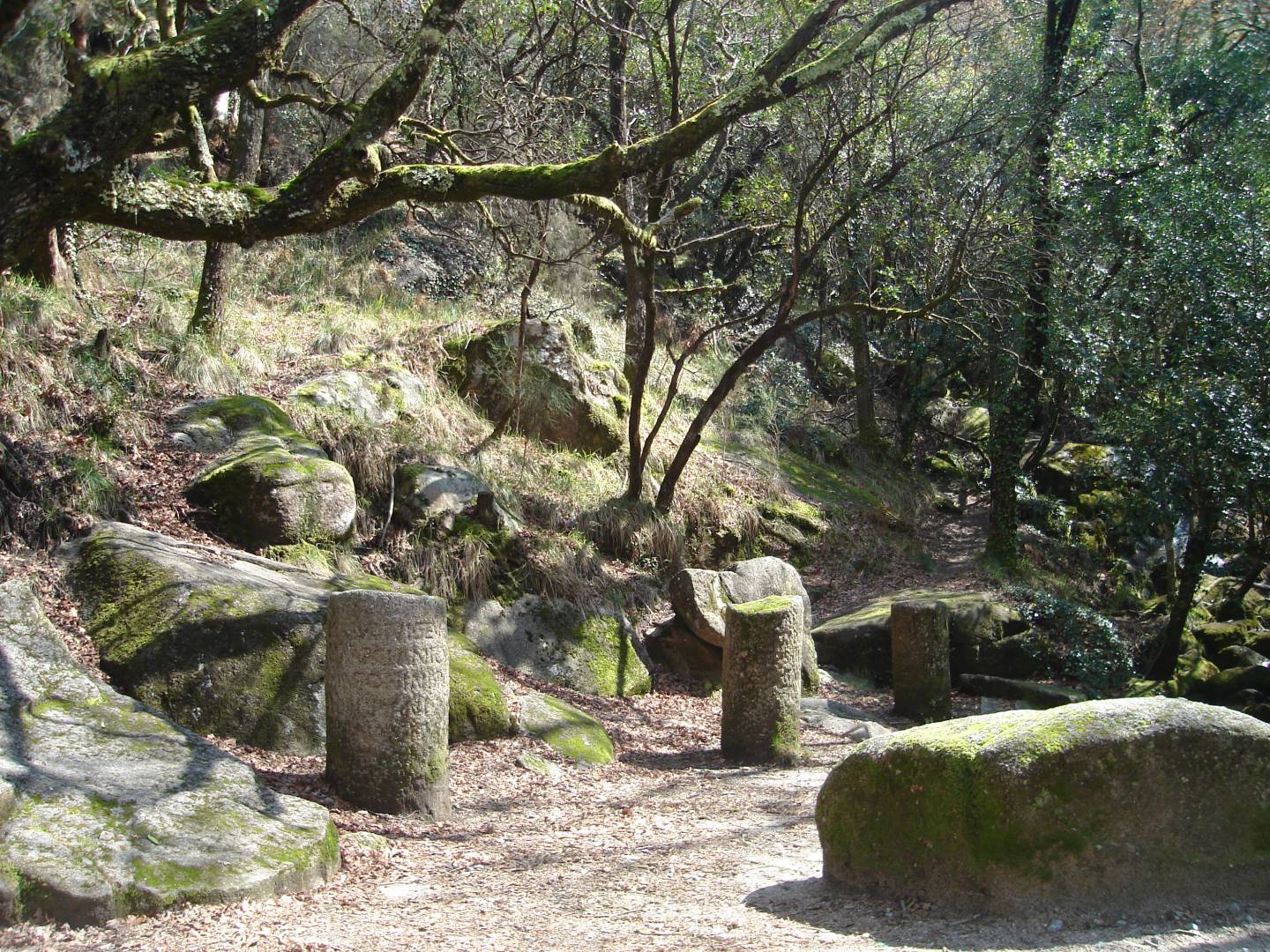
We start our road trip in the magnificent Albergaria Forest, one of the most beautiful and important forests of Gerês, with an impressive fauna and flora. If you're lucky, you might come across a group of Garrano horses. Here we can find important Roman remains, such as the Geira Romana (ancient Roman Road). We recommend a walk along this Roman pavement that once linked Braga to Astorga in Spain.
São Bento da Porta Aberta

We head to São Bento da Porta Aberta Sanctuary, the second largest in Portugal after Fatima, which receives more than 2.5 million pilgrims a year. Since the first hermitage was built in 1640, the sanctuary maintained an "open door" policy, giving shelter to those who pass by, thus earning its characteristic name. Before moving on to the next point, enjoy the magnificent views over the Caldo River.
Tahiti Waterfall – Fecha de Barjas
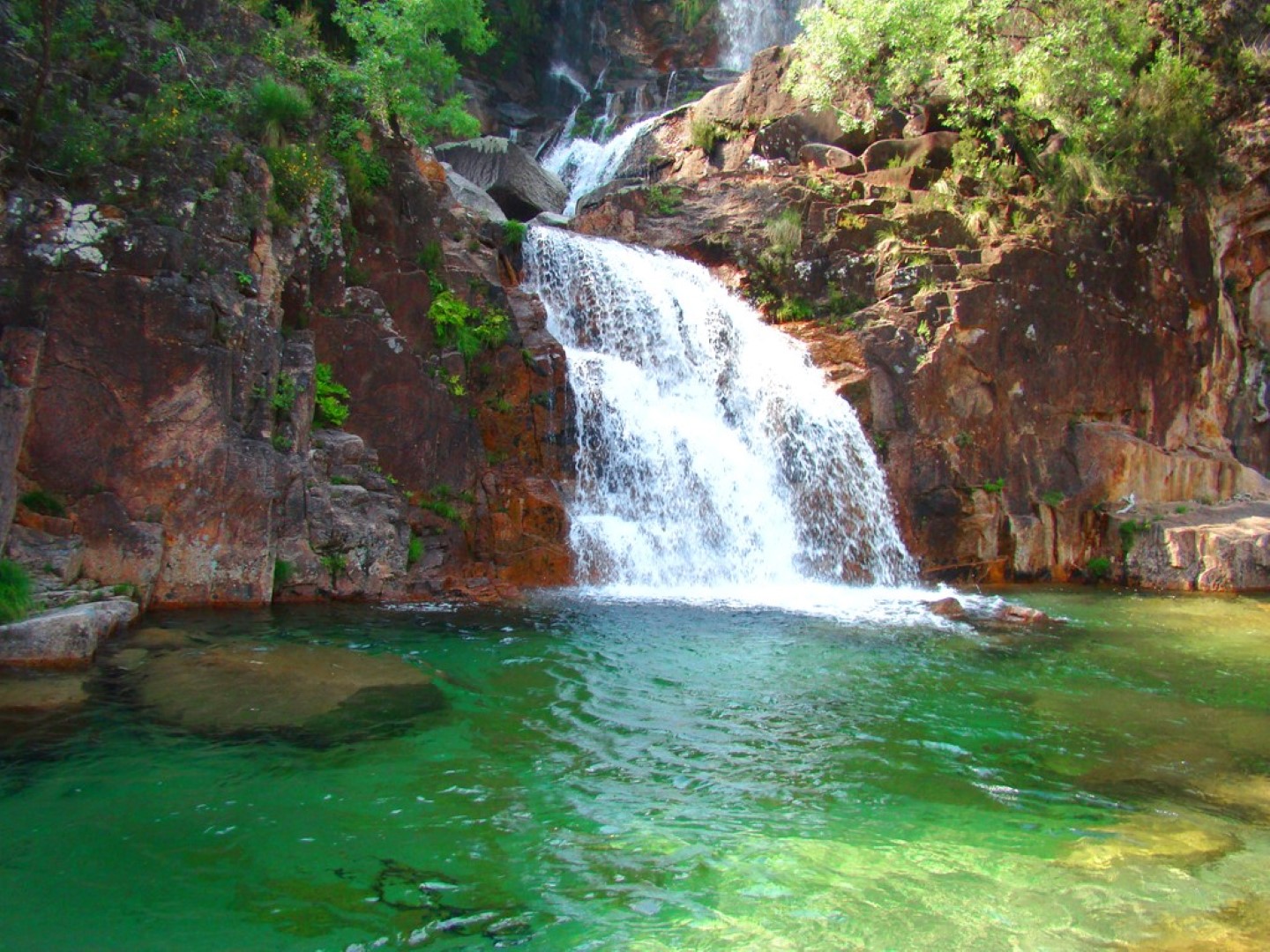
To reach the Fecha de Barjas Waterfall, better known as Tahiti Waterfall, you must take the road that connects Fafião to Ermida, park by the bridge - where the signpost is - and go down the right side with the utmost care. A radical descent that ultimately reveals one of the largest and most beautiful lagoons of Gerês. Enjoy the crystal clear waters of the Arado River and recharge your energy for the climb.
Arado Waterfall
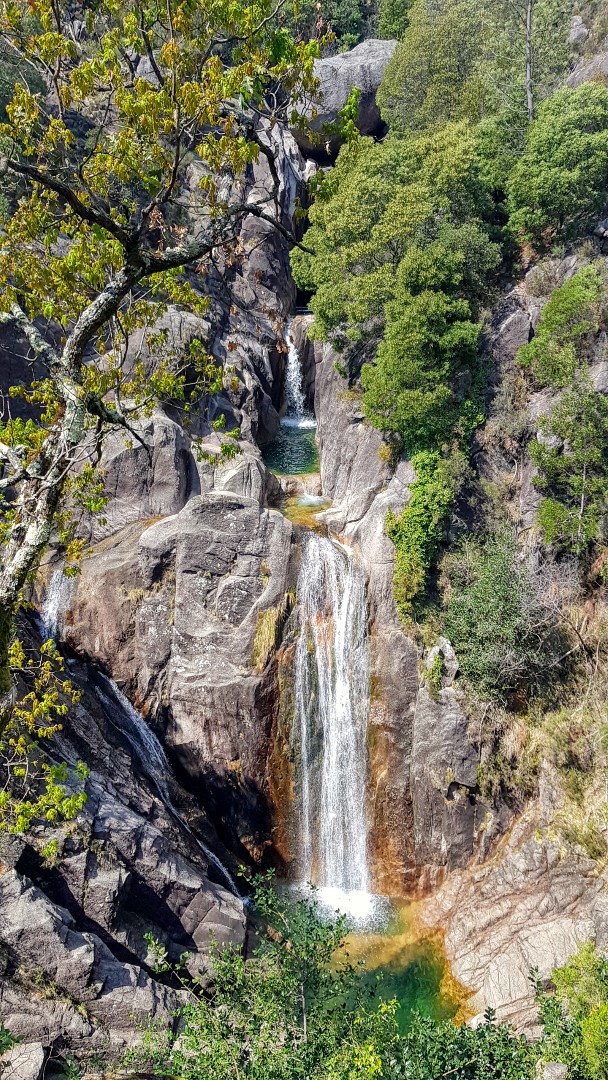
Conversely, the Arado River Waterfall has excellent conditions and car access. Park near the bridge and climb a staircase leading to a viewpoint, where you can admire the beauty of its 900 meters, with a succession of small waterfalls that create a lake of crystal clear water. If you can't resist another dive before leaving, you can access the base of the waterfall through the main road.
Pedra Bela Viewpoint
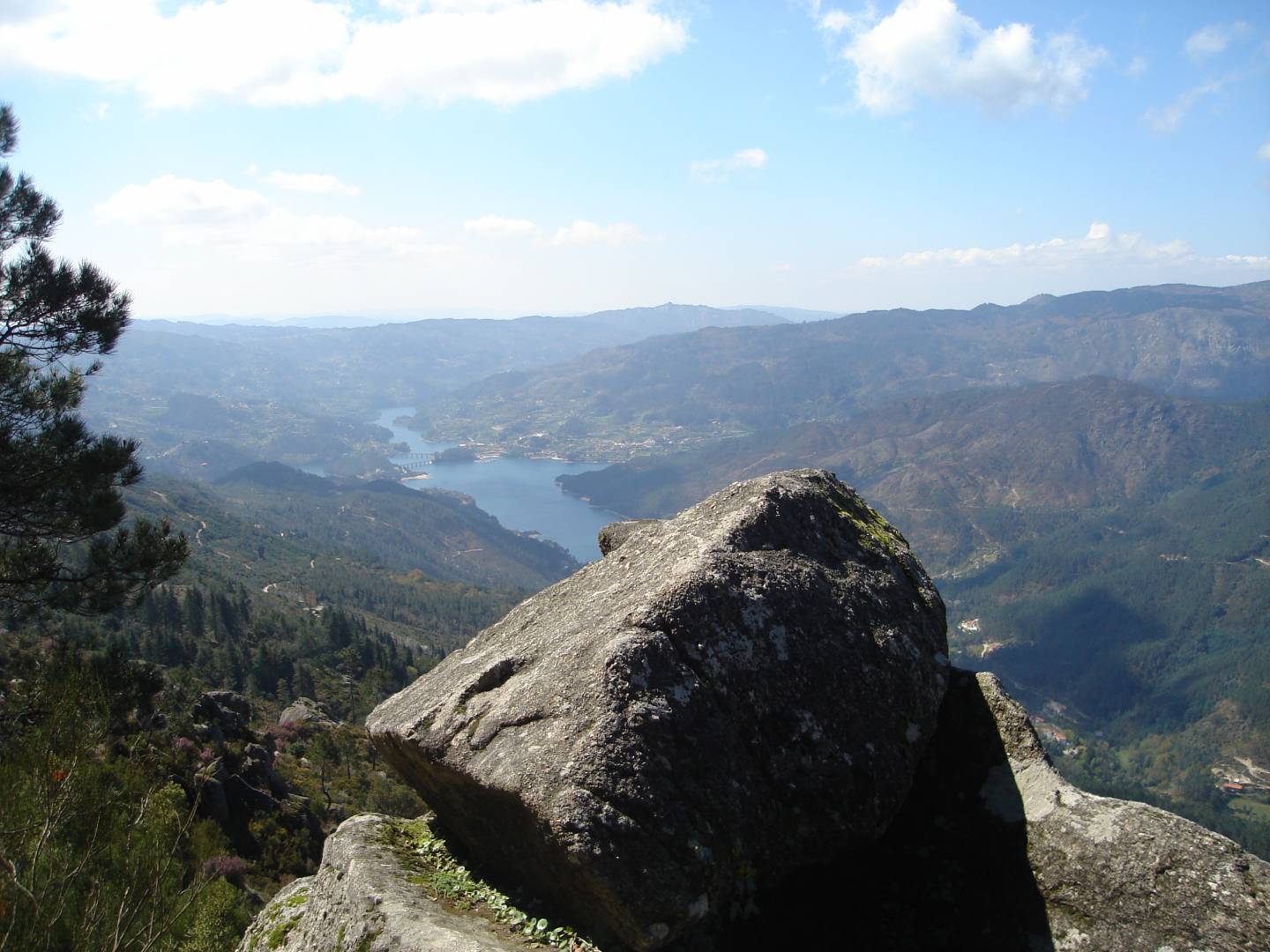
Very close to the Arado Waterfall is the Pedra Bela Viewpoint, the best known and most visited Gerês viewpoint. Surrounded by a magnificent forest, which helps create the mysticism of the place, the viewpoint offers breathtaking views over the whole mountain, especially of the Gerês Reservoir and the Caniçada Dam. A great place to watch the sunset.
Portela do Homem Waterfall
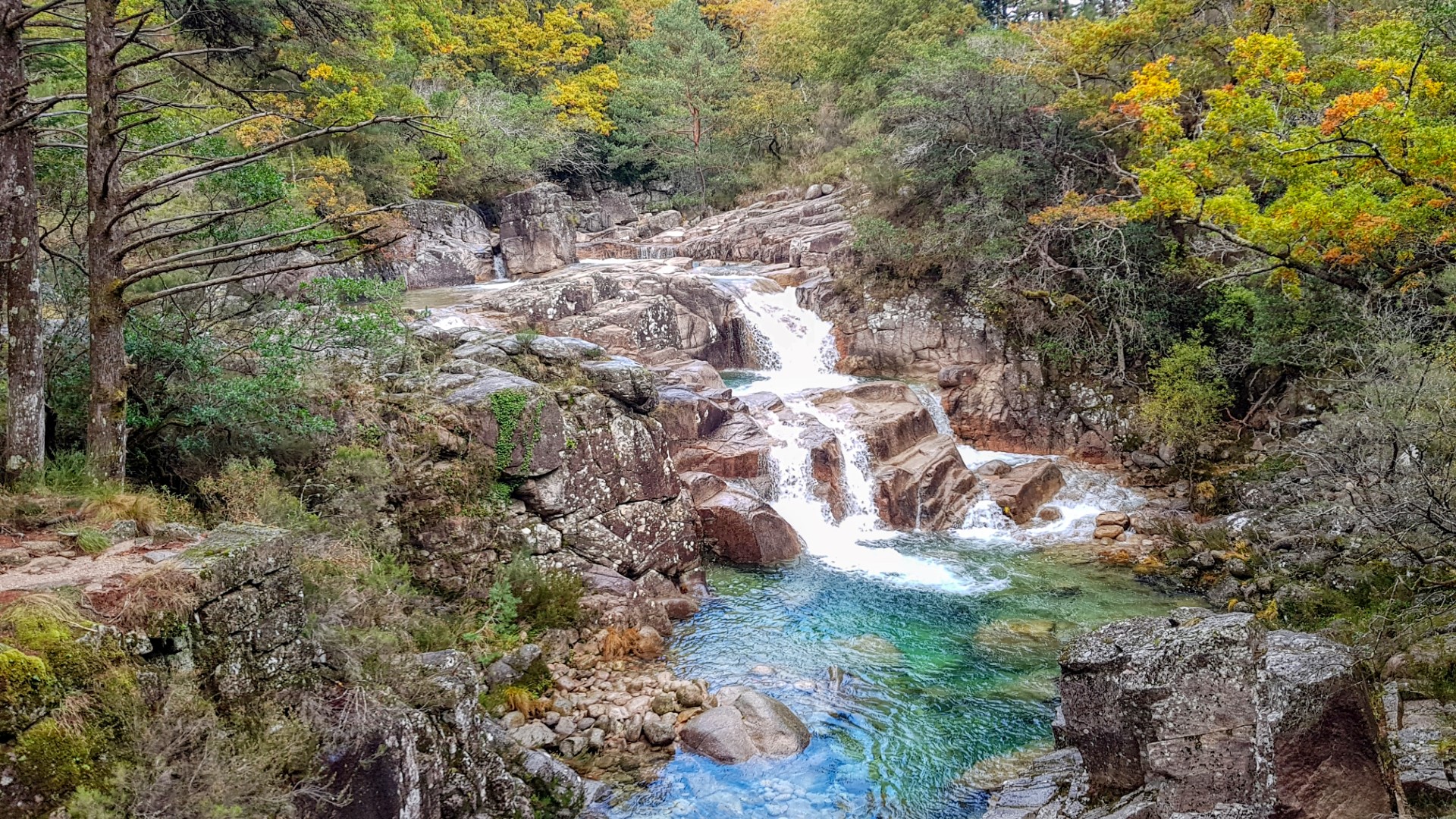
We now return to the waterfalls, this time the waterfall of the Homem River, better known as the Portela do Homem Waterfall. Follow the road leading to the border, park your car, as you will not be able to do it near the waterfall, and continue on foot. It is fairly accessible, and its natural surroundings and crystal clear waters are an undeniable invitation for a swim, the best way to end this first day.
Reservoir of Vilarinho das Furnas
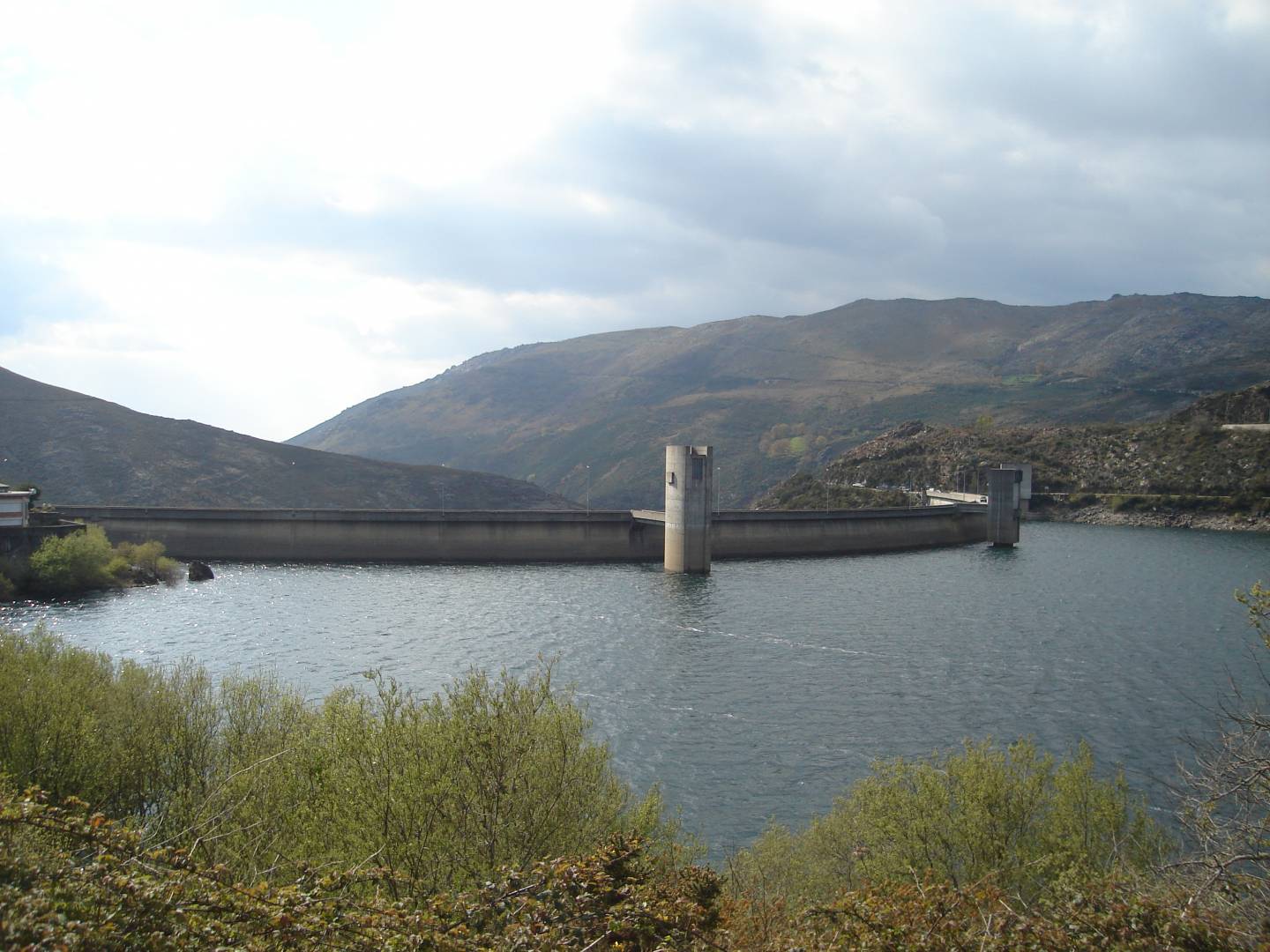
We start the second day at the Reservoir of Vilarinho das Furnas, where the landscape is, by itself, reason enough for a visit, although it also allows some sports activities. However, if you are lucky enough to visit it at a drier time, such as in late summer, you can still glimpse the ruins of the village of Vilarinho das Furnas, submerged since 1972 when the dam was built.
Thermal Complex of Gerês
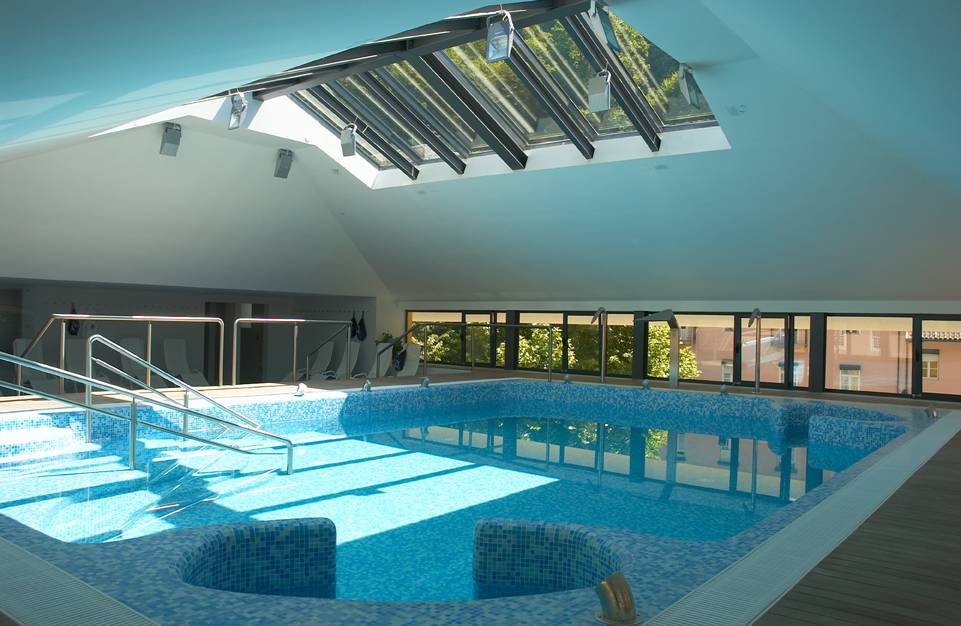
We head to the Spa Village of Gerês for a relaxing moment in its thermal baths complex, which also includes a hotel and a Spa. At the Spa you have plenty to choose from, from dietary rehabilitation programmes to physical and psychological relaxation. Don't miss the spa park, where you can take a rowing boat ride on its small lake.
Misarela Bridge
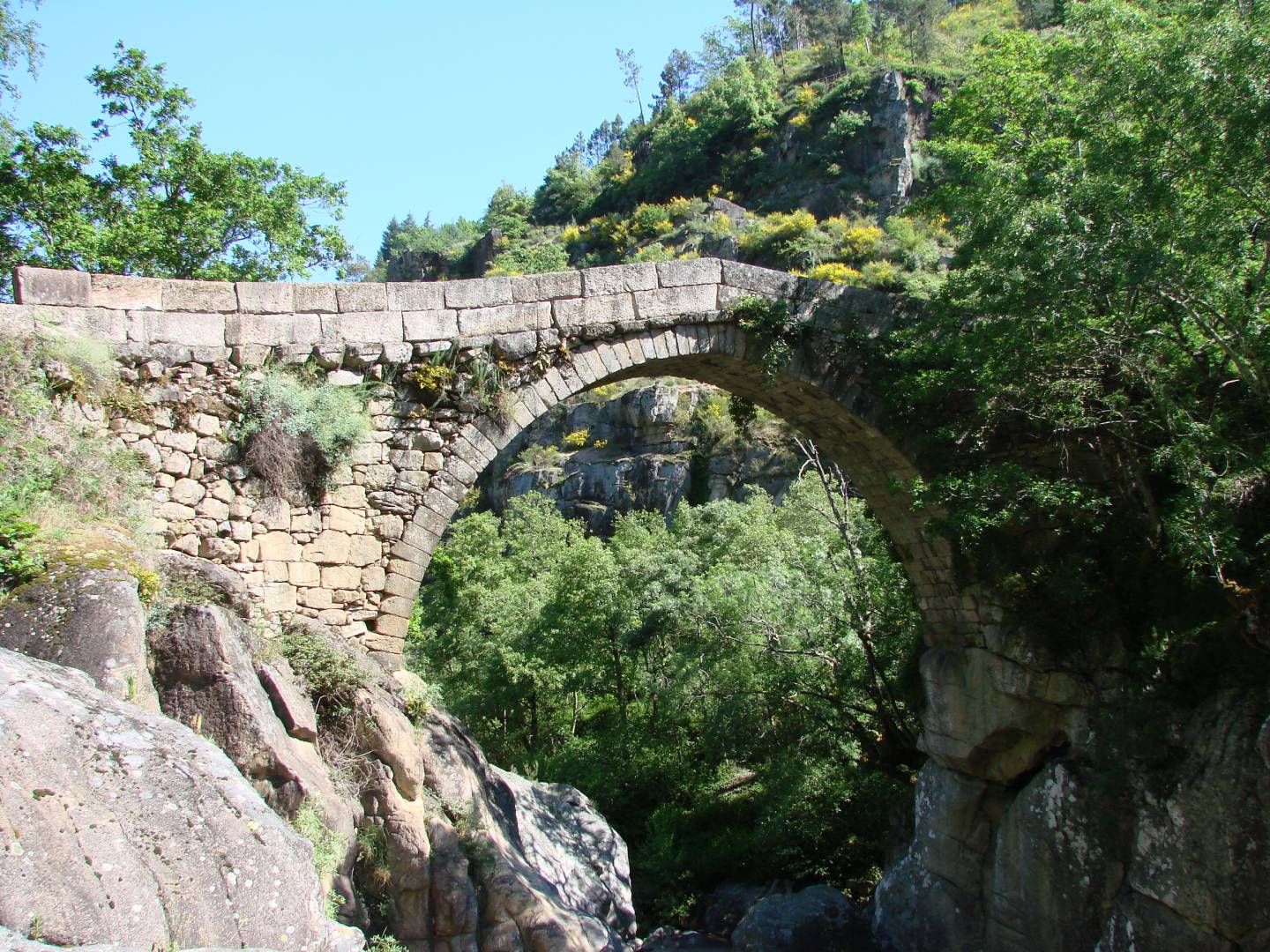
Misarela's medieval bridge, popularly known as the Devil's Bridge or Hell's Bridge, stands imposingly over the Rabagão River. Located in a secluded area, in a gorge surrounded by boulders and dense vegetation, and where a magnificent waterfall stands, it has an aura of mysticism that explains the legend that underlies the name: it is believed to be the work of the Devil.
Village of Pitões das Júnias
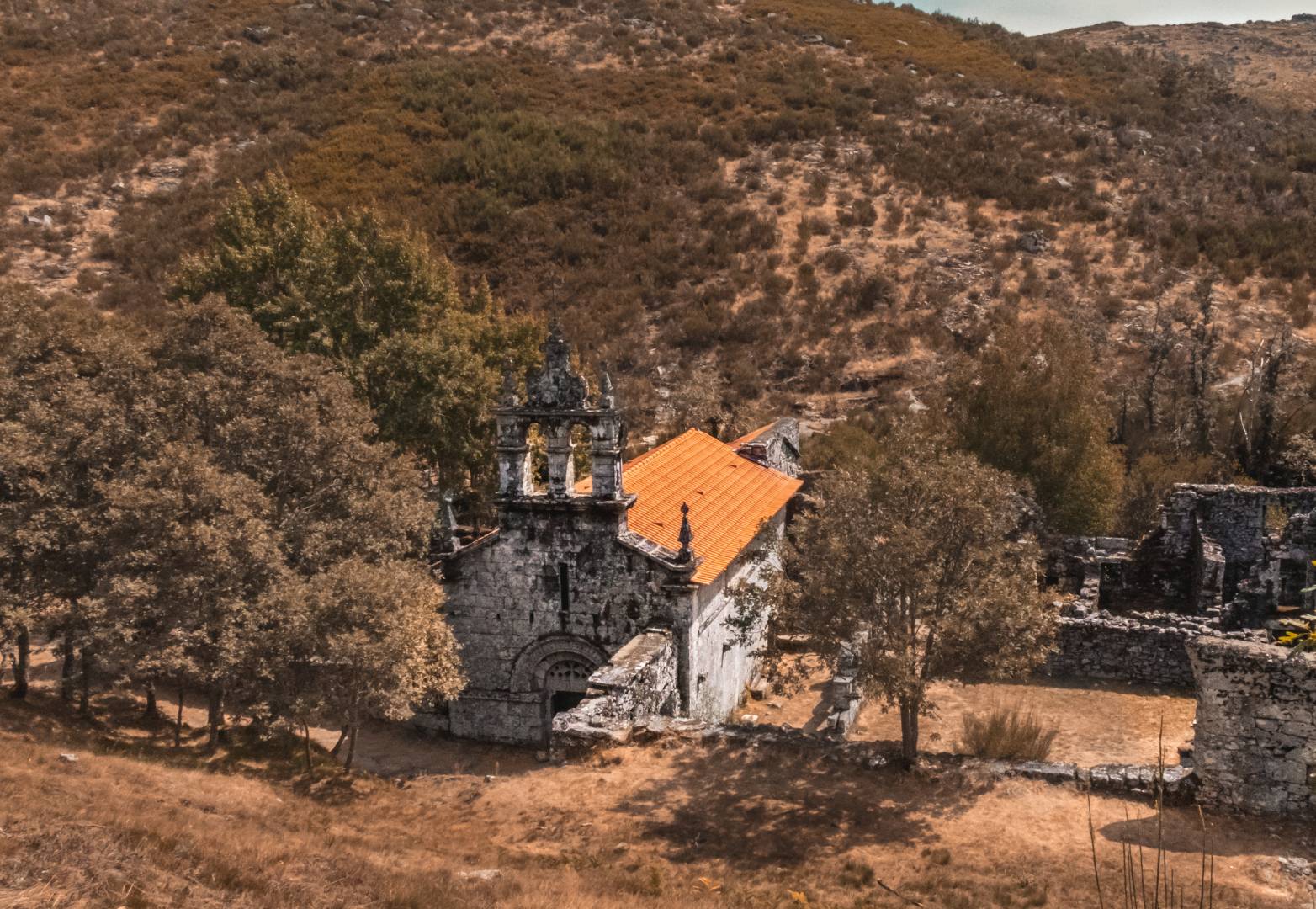
Arriving at the mountain village of Pitões das Júnias, located over 1000 meters above sea level, the feeling is of having gone back in time. Take a stroll through this charming village with granite houses and narrow streets, surrounded by meadows. If you have time, be sure to visit the Monastery of Santa Maria das Júnias and the Waterfall, located within two kilometres of the village.
Mezio's Gate
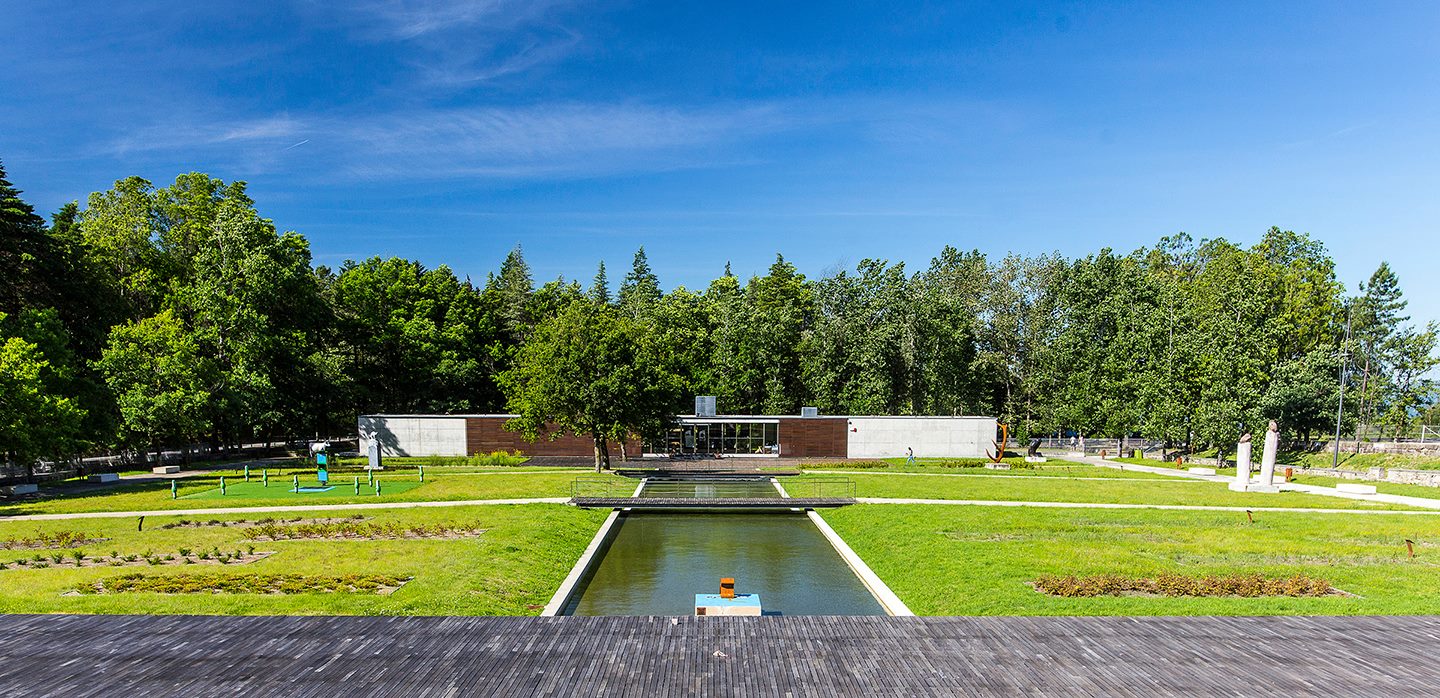
The Mezio's Gate is one of the five entrance doors into Gerês, but it is much more than that. Here you will find sporting and playful spaces for kids and adults, from the Adventure Park to the Avifauna Observatory, and also the Aldeia dos Pequenitos (Village of the Little Ones). The Gerês is recognized by UNESCO as a World Biosphere Reserve, so this is also a space of awareness, under the theme “Conservation of Nature and Biodiversity”.
Sistelo Village
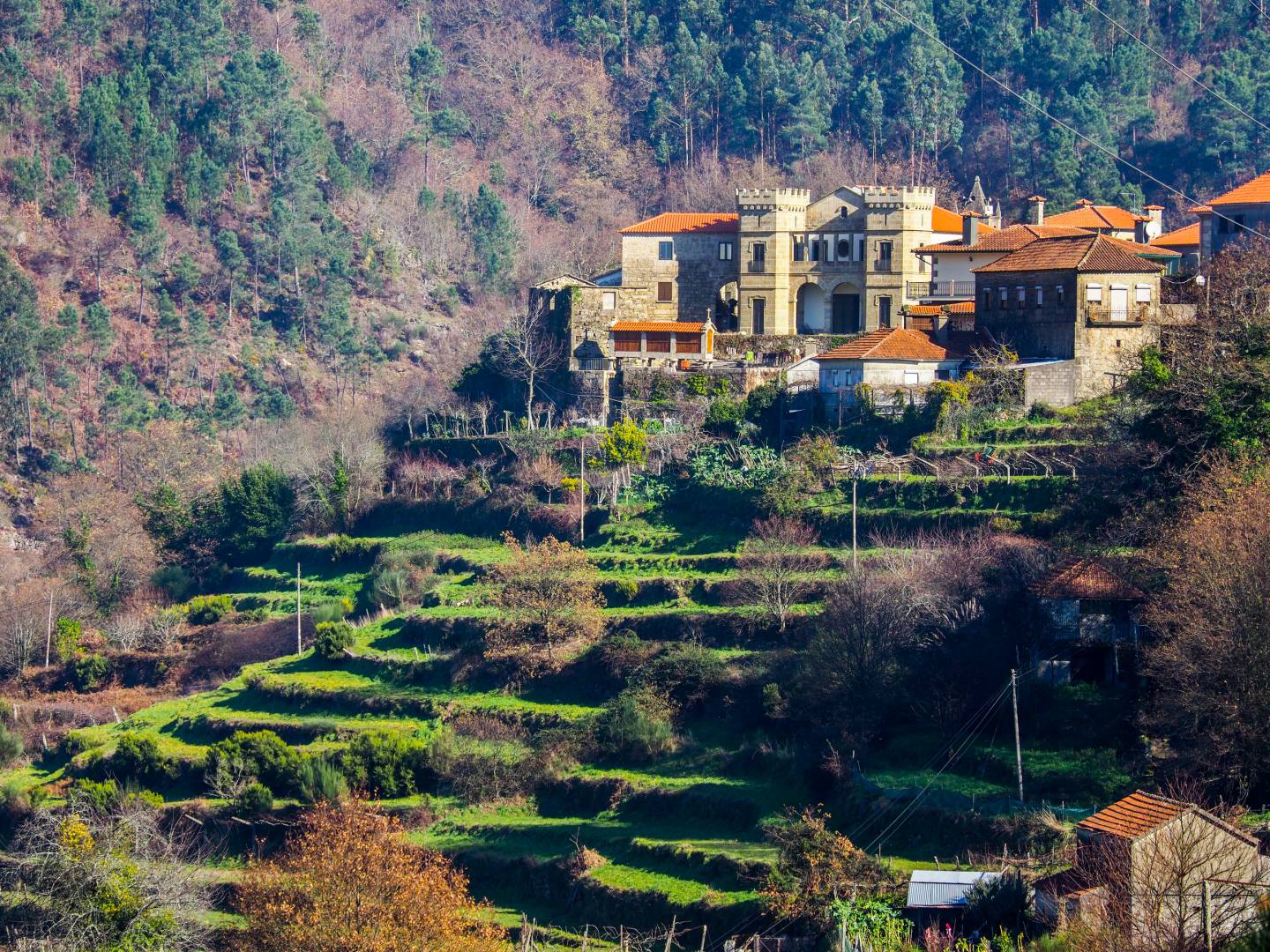
Back on the road, we leave towards the last point of our itinerary, the Sistelo Village, also known as the Portuguese Tibet. Characterized by its terraces, this cute village is one of the 7 Wonders of Portugal, in the villages' category. It underwent restoration work in its granite houses, granaries and washhouses, always maintaining perfect communion with nature.
Recommended




